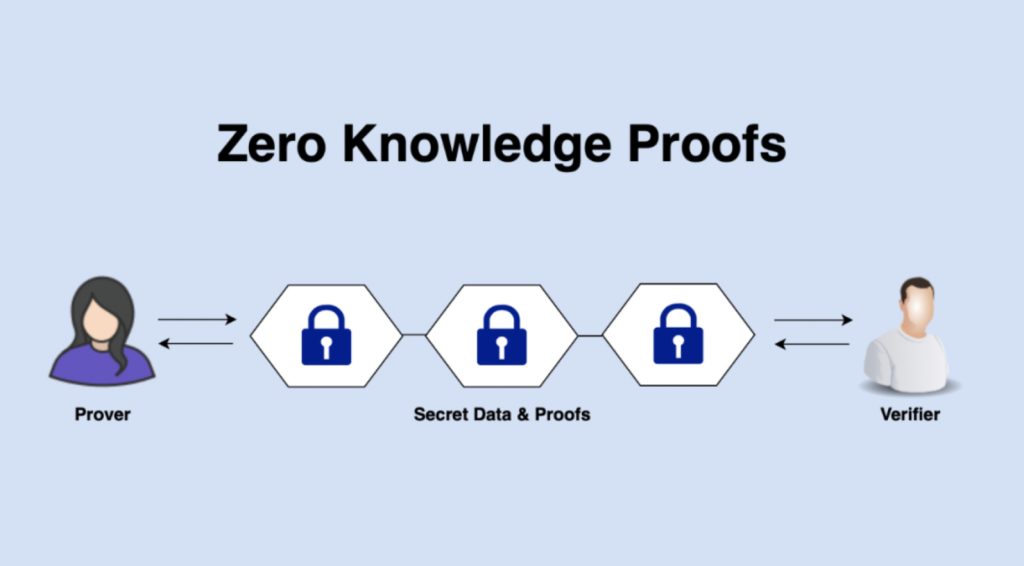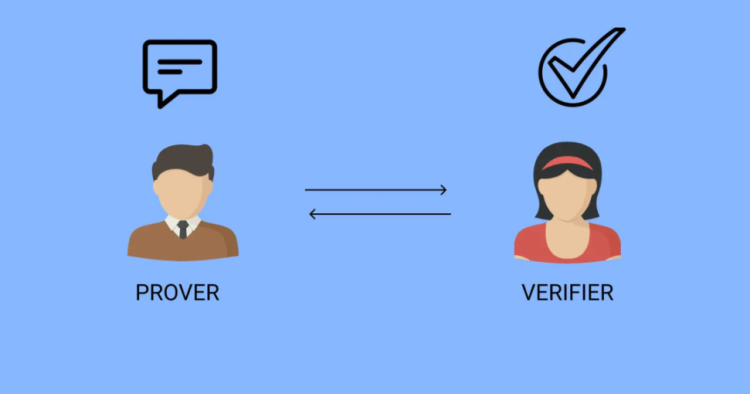Introduction
Blockchain technology is widely praised for its transparency and immutability. However, this very transparency often comes at the cost of privacy. While transactions on most blockchains are pseudonymous, anyone can still trace balances and activity. As blockchain adoption expands into sensitive sectors like finance, identity, and healthcare, this lack of privacy becomes a major concern.
Zero-Knowledge Proofs (ZKPs) offer a groundbreaking solution. They enable one party to prove to another that a statement is true without revealing any other information. This elegant cryptographic concept has the potential to reshape how privacy, scalability, and trust are managed in blockchain systems.
In this article, we’ll explore what ZKPs are, how they work, and how they’re transforming the privacy landscape of blockchain technology.
What Is a Zero-Knowledge Proof?
A Zero-Knowledge Proof is a cryptographic method that allows someone (the prover) to convince another party (the verifier) that a given statement is true, without revealing any details beyond the fact that the statement is true.
The idea was first introduced in the 1980s by researchers Shafi Goldwasser, Silvio Micali, and Charles Rackoff. It might sound abstract, but its application is powerful: privacy-preserving authentication, identity verification, and secure computation are all made possible without revealing any sensitive data.
Simple Analogy: The Magic Cave
Imagine a circular cave with a locked door at the back. Peggy (the prover) claims she knows the secret word to open the door. Victor (the verifier) wants proof but doesn’t want to learn the secret itself.
Peggy enters one side of the cave, and Victor chooses which exit she should come out of. If Peggy knows the secret, she can open the door and appear at either exit. Repeating this many times gives Victor high confidence that she knows the secret—without ever revealing it.
This analogy captures the core idea of a zero-knowledge proof.
How Do ZKPs Work in Cryptography?
At a high level, a ZKP must satisfy three properties:
- Completeness: If the statement is true, an honest verifier will be convinced.
- Soundness: If the statement is false, a dishonest prover cannot convince the verifier.
- Zero-Knowledge: The verifier learns nothing other than the truth of the statement.
There are two main types of ZKPs used in blockchain:
- Interactive ZKPs: Require back-and-forth communication between the prover and verifier.
- Non-interactive ZKPs (NIZKPs): Generate a single proof that can be verified independently. These are more practical for blockchain and smart contract use.
Variants of ZKPs Used in Blockchain
zk-SNARKs
(Zero-Knowledge Succinct Non-Interactive Argument of Knowledge)
- Short proofs
- Quick to verify
- Used by Zcash and various Ethereum Layer 2 solutions
zk-STARKs
(Scalable Transparent ARguments of Knowledge)
- No need for a trusted setup
- Scalable and quantum-resistant
- Used by platforms like StarkNet
Each has trade-offs in terms of speed, security, and transparency, but both enable powerful privacy-preserving applications.
How ZKPs Enhance Blockchain Privacy
Traditional blockchains record all transaction data publicly. This transparency is a feature for auditability—but it’s a flaw for confidentiality. ZKPs allow blockchains to retain the benefits of transparency while preserving privacy.
1. Private Transactions
With ZKPs, users can prove they own assets or made a valid transfer without revealing:
- Their wallet address
- The recipient’s address
- The transaction amount
Example:
Zcash uses zk-SNARKs to allow shielded transactions where sender, receiver, and amount are all encrypted—yet still verified by the network.
2. Identity Protection
ZKPs enable users to prove claims about their identity without revealing personal information.
Use cases include:
- Proving you’re over 18 without sharing your birth date
- Authenticating a university degree without sharing the document
- Logging in without passwords
3. Regulatory Compliance Without Exposure
Businesses can use ZKPs to comply with regulations (like anti-money laundering or KYC) by proving compliance to authorities—without exposing customer data on-chain.
4. Secure Voting and Governance
ZKPs make it possible to build anonymous and verifiable voting systems where no individual vote is revealed, but the results are transparent and trustworthy.
5. Confidential Smart Contracts
Smart contracts can perform operations on private inputs using ZKPs. This allows:
- Private auctions
- Sealed-bid marketplaces
- Confidential DeFi protocols
ZKPs and Scalability: A Bonus Benefit
ZKPs don’t just enhance privacy—they also improve scalability.
- In zkRollups, thousands of transactions are bundled off-chain, and a single proof is submitted on-chain to confirm the batch.
- This drastically reduces transaction costs and network congestion.
Platforms like zkSync, StarkNet, and Polygon zkEVM use this model to scale Ethereum while preserving security.

Challenges of Implementing ZKPs
While ZKPs are powerful, they’re not without limitations:
- Complexity: Implementing ZKPs requires advanced cryptographic knowledge and rigorous security practices.
- Computation Cost: Generating zero-knowledge proofs (especially zk-SNARKs) can be computationally intensive.
- Trusted Setup (in some cases): Some systems require an initial setup phase where a secret is generated—if compromised, it could undermine the system.
- Limited Smart Contract Compatibility: Integrating ZKPs with existing blockchains and smart contract platforms can be challenging, though this is rapidly improving.
Real-World Blockchain Projects Using ZKPs
- Zcash: Pioneer in privacy-focused cryptocurrencies using zk-SNARKs
- Aztec Network: Private DeFi on Ethereum using zkRollups and zkSNARKs
- StarkNet: A general-purpose zkRollup platform using zk-STARKs
- zkSync: Scalable, low-cost Ethereum Layer 2 powered by zk-SNARKs
- Polygon zkEVM: Fully compatible with Ethereum smart contracts, but privacy- and efficiency-enhanced via ZK tech
The Future of ZKPs in Blockchain
Zero-knowledge proofs are increasingly viewed as essential infrastructure for the next evolution of blockchain technology—particularly in the Web3 era.
Emerging trends include:
- ZK-powered identity systems (e.g., Worldcoin’s proof-of-personhood)
- Decentralized AI integrating private computation via ZKPs
- Cross-chain privacy-preserving protocols
- Widespread use of ZKPs in gaming, healthcare, and enterprise systems
ZKPs are enabling blockchains to support privacy, compliance, and usability—without compromising decentralization or security.
Conclusion
Zero-knowledge proofs are a game-changer for blockchain privacy. They allow trustless verification without disclosure, paving the way for truly private, secure, and efficient decentralized systems. As ZKP technology becomes more accessible and integrated into mainstream blockchains, it will play a central role in shaping the future of finance, identity, and the decentralized web.
Whether through shielded transactions, privacy-preserving identity, or scalable rollups, ZKPs are quietly building the foundation of a more private and scalable blockchain era.













































